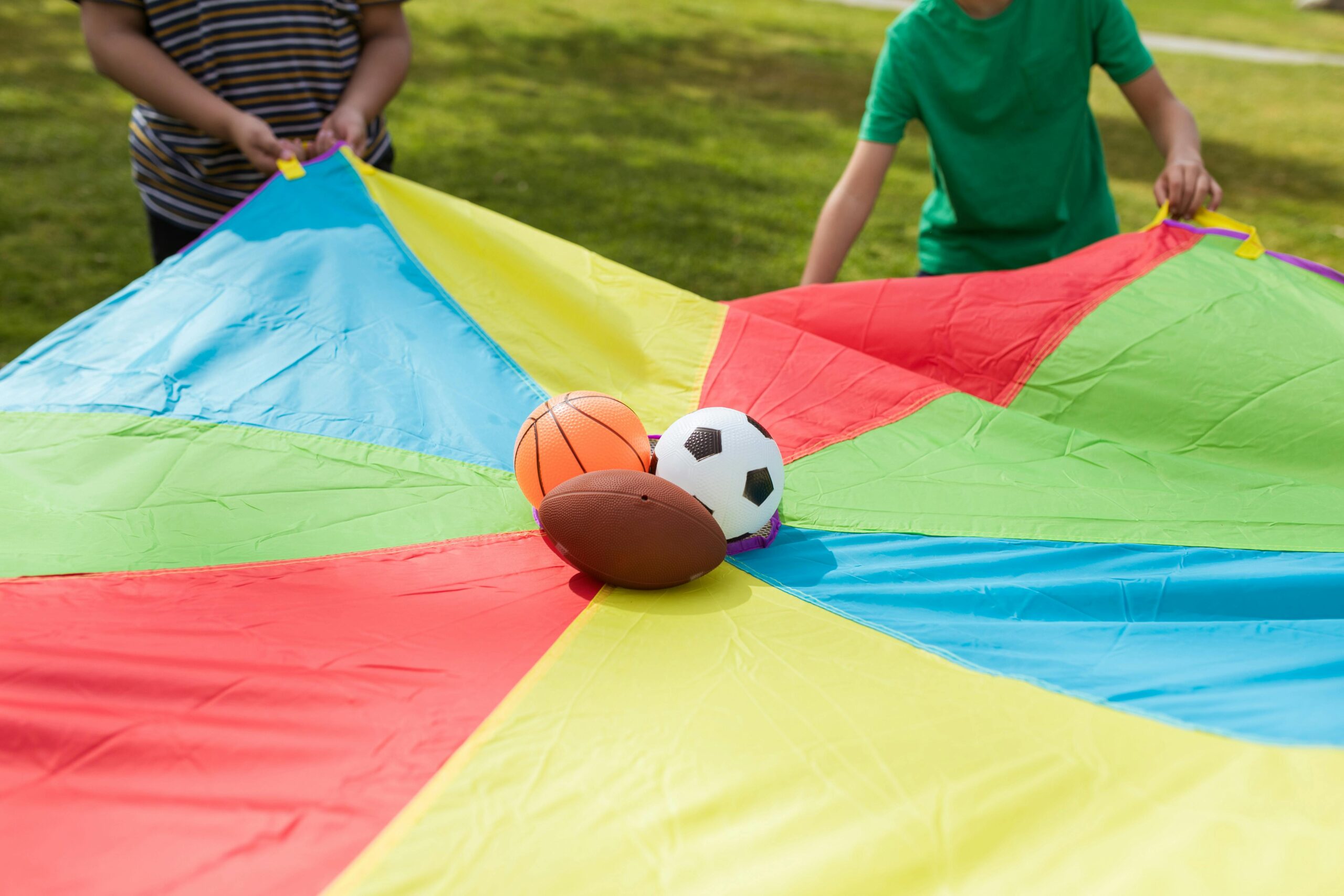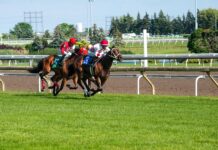College football betting by weather impact — sounds niche, right? But what if I told you it’s one of those surprising game-changers that nobody’s really talking about? Yeah, weirdly enough, the weather can totally flip the script on your bets in ways you’d never expect. Not gonna lie, this surprised me too. It’s like, we obsess over player stats, team form, and injuries, but forget about the wind, rain or even the heat messing with the game. So, why is no one talking about college football betting by weather impact more seriously?
Maybe it’s just me, but it feels like we’ve been wrong all along, ignoring how a sudden downpour or a freezing cold snap can affect the entire flow of a match. You’d think this would be obvious, right? But think about it — a muddy field or gusty winds can wreck a passing game or slow down fast teams, which, surprise surprise, changes the odds big time. If you’re into college football betting strategies or want to up your game, ignoring weather factors could be like throwing money out the window. So, what are these weather variables and how do they actually influence your bets? Stick around, because this might just be the edge you didn’t know you needed.
How Weather Conditions Dramatically Influence College Football Betting Odds: Top Factors to Watch
How Weather Conditions Dramatically Influence College Football Betting Odds: Top Factors to Watch
Alright, so here’s the thing about college football betting — it’s not just about which team’s got the flashiest quarterback or the meanest defensive line. Nope, Mother Nature often crashes the party, and you’d better believe that weather conditions can mess with betting odds in ways that are both subtle and, frankly, a bit bonkers. Seriously, who even came up with this? But hey, if you’re throwing down cash on a game, maybe it’s just me, but ignoring the weather feels like betting blindfolded.
Why Weather Actually Changes the Game
It’s tempting to think, “Oh, it’s just a bit of rain or wind, what’s the worst that can happen?” Well, turns out, quite a lot. Weather impacts everything from game tempo to player performance, which in turn affects scoring and, for the punters among us, betting lines.
Here’s a quick rundown of how weather conditions mess with college football betting odds:
- Rain and Wet Fields: Slippery turf means fewer big plays, more fumbles, and a slower game overall.
- Wind: A strong breeze can turn a kicker into a nervous wreck and quarterbacks into turnstiles.
- Cold: Not just uncomfortable, cold weather tends to favour running plays over passing, which changes scoring expectations.
- Snow: Visibility issues and slippery conditions — basically chaos.
So, yeah, the weather can be a game-changer. Not literally a game-changer, but you get my drift.
The Surprising Game-Changers: College Football Betting By Weather Impact
You might think that weather just makes things harder for players, but it also reshuffles the deck when it comes to betting odds. Oddsmakers obsess over these conditions because a windy, rainy game isn’t going to look anything like a sunny day’s match.
Think about it:
- Under usual circumstances, Team A might be a favourite by 7 points (because they’ve got a killer passing game).
- Now toss in a howling gale and steady rain, and suddenly that 7-point spread might shrink to 3 or even flip. Why? Because those fancy passing plays get stifled, and the other team’s brute running game is suddenly more valuable.
And this isn’t just theory. Historical data backs it up:
| Weather Condition | Impact on Scoring | Effect on Betting Odds |
|---|---|---|
| Heavy Rain | Lower total points | Smaller spreads |
| Strong Winds | Reduced passing yards | Increased favouritism towards run-heavy teams |
| Cold (<40°F) | More rushing, less passing | Shift in over/under totals |
| Snow | Slower pace, more turnovers | Betting lines tighten, underdogs gain edge |
Seriously, it’s fascinating how these natural elements throw a spanner in the works.
Okay, So What Should Bettors Actually Look Out For?
I’m not gonna pretend it’s rocket science, but if you’re thinking about betting on college football, keep these in mind:
- Check the Forecast Early: Weather reports change, but early intel helps.
- Know the Teams’ Strengths: Is the team more pass-heavy or run-focused? Weather handicaps those differently.
- Consider Special Teams: Wind can ruin field goals and punts, which means scoring might be lower.
- Keep an Eye on Injuries: Cold or wet conditions can exacerbate player fatigue or injury risks.
- Adjust Your Expectations: If you’re used to high-scoring games, bad weather might mean it’s time to bet the under.
Honestly, sometimes it feels like betting in the rain is just asking for trouble. But then again, a bit of chaos spices things up, doesn’t it?
Sorry, Had to Grab a Coffee — Anyway…
Where was I? Oh yeah, the weather’s impact on betting is kinda underrated. I mean, people obsess over player stats and team records, but the skies above? That’s where the unpredictable magic happens. And it’s not just about the obvious stuff like rain or snow. Humidity and temperature swings can affect ball handling and stamina too. Weird, right?
Also, oddsmakers sometimes overreact to weather, which means sharp bettors can find value. Like, if everyone’s freaking out about a bit of drizzle, the favourites might get undervalued because bettors assume the game will be a low-scoring snooze fest. But if a team thrives in bad weather, that’s your golden nugget.
Quick Recap: Weather and College Football Betting Impact
- Weather conditions can drastically alter game dynamics.
- Rain, wind, cold, and snow each have unique effects.
- Betting odds adjust to reflect these changes, but sometimes imperfectly.
- Sharp bettors pay close attention to weather to find hidden
7 Surprising Ways Rain and Wind Can Change College Football Betting Outcomes
Alright, so college football betting and weather—yeah, you might think it’s all about the teams, the stats, the star players, right? But nah, the rain and wind can totally mess with those neat little predictions you make. Honestly, it’s like Mother Nature is the sneaky referee nobody asked for. I mean, if you’re into college football betting by weather impact, buckle up. Because these 7 surprising ways rain and wind flip the script might just blow your mind (and your bets). Or maybe they won’t. Who knows.
7 Surprising Ways Rain and Wind Can Change College Football Betting Outcomes
Before you roll your eyes and think, “It’s just weather, mate,” hear me out. These elements don’t just make the players wet or mess up their hair. They literally alter the entire game flow and, yeah, the betting too. Here’s how:
Passing Games Get Totally Skewed
Rain or heavy wind? Say goodbye to those long, precision passes. Quarterbacks suddenly look like they’re throwing wet noodles. This usually means fewer touchdowns through the air and more reliance on the ground game. So, if you bet on a high-scoring aerial battle, you’re probably gonna get burned.Field Conditions Affect Player Speed and Injuries
Slippery turf = slower players and more cautious moves. Plus, injuries spike because no one’s got perfect footing. This can drag the game tempo down and mess with how many points get scored overall.Special Teams Become Unpredictable
Kicking in high winds is like trying to thread a needle in a hurricane. Field goals? Less likely. Punts? More likely to be shanked or blocked. If you’re betting on field goals or punt returns, be prepared for some wild outcomes.Turnover Rates Climb
Wet balls are slippery, leading to more fumbles and interceptions. Teams that usually play conservatively might suddenly get edgy, throwing risky passes or fumbling the ball at clutch moments. This changes the game’s momentum big time.Coaching Strategies Shift (Sometimes Drastically)
Ever notice how coaches suddenly switch to a “run-run-run” approach when it rains? It’s not just tradition — it’s because passing becomes a bigger gamble. Weather can force unexpected play-calling that totally throws off your betting models.Home Field Advantage Can Be Amplified
Teams used to local weather conditions might have an edge in wind or rain. A Florida team playing in a wet, windy northern stadium might struggle more than people expect. So, weather can tilt the scales beyond just team skill.Game Pace Slows, Affecting Over/Under Bets
Rain and wind slow everything down. Less scoring, longer drives, more punts. So, if you’re betting on the over/under, weather might be the deciding factor on whether you win or lose your wager.
College Football Betting By Weather Impact: Surprising Game-Changers
Honestly, the whole “weather impact” thing is probably the most underrated factor in college football betting. Bookies might adjust odds a bit, but most casual bettors barely glance at the forecast. Maybe it’s just me, but that seems like a massive oversight.
Remember that one game back in, like, 2018? When the wind gusts hit 40 mph during a big college playoff? The passing yards dropped by over 50% compared to the season average for both teams. Yet, a lot of bets were still on the high-scoring side. Total nail-biter for those who didn’t bother factoring in weather.
Anyway, what was I saying again? Oh right, strategies. Coaches might look at the weather and literally change their entire gameplan overnight. So, if you’re into betting, you might wanna pay attention to any late game-day weather updates. They can be pure gold for tweaking your bets.
Sorry, had to grab a coffee — anyway…
Here’s a quick rundown to keep in mind when you’re eyeballing a college football game with rain or wind in the forecast:
- Check the forecast on game day, not just days before. Weather changes, mate.
- Look at team history in bad weather. Some teams just handle soggy fields better.
- Consider the kicker’s experience in tough conditions — some are chill, some panic.
- Watch for coaching tendencies: run-heavy or pass-heavy adjustments.
- Don’t forget about attendance/weather impact on crowd noise — home advantage gets weird in storms.
Quick Table: Weather Factors and Their Betting Impact
| Weather Factor | Impact on Game | Betting Consideration |
|---|---|---|
| Heavy Rain | Slippery field, ball handling issues | Avoid big passing bets, expect slower pace |
| Strong Wind (> |
Expert Tips for Adjusting College Football Bets Based on Weather Forecasts
Alright, so you’re thinking about college football betting, right? But wait, before you just throw your money on the usual suspects, have you ever stopped to consider the weather? Yeah, I know, sounds a bit… well, nerdy? But apparently, weather can be a total game-changer when it comes to college football bets. Not really sure why this matters, but hey, the pros swear by it. So, here’s the lowdown on Expert Tips for Adjusting College Football Bets Based on Weather Forecasts… or as I like to call it, “How the sky might mess with your money.”
Why Weather Even Matters in College Football Betting
Okay, so here’s the thing: college football games aren’t played in some sterile indoor bubble (most of the time). They’re out there on fields, exposed to whatever Mother Nature decides to throw at ‘em. Rain, wind, snow, heat—these factors can totally shift how teams perform, and thus, how you should bet.
Historically, games played in bad weather tend to have:
- Lower total points (because passing gets tricky)
- More running plays (teams go ground-and-pound to avoid turnovers)
- Increased chance of turnovers (fumbles, interceptions)
- Sometimes, unexpected upsets (because the favourites can’t adapt)
Honestly, it’s a bit like cooking—if you throw in a wild ingredient (like a hurricane-level wind), the recipe changes. And maybe your bet should too.
College Football Betting by Weather Impact: Surprising Game-Changers
You wouldn’t think rain would stop a quarterback from throwing bombs, but seriously, it does. I remember this one game (can’t recall which exactly, but it was wild) where the wind was so strong the kicker couldn’t even line up a field goal properly. It’s nuts.
Here’s some weather elements and their typical impacts:
| Weather Element | Typical Game Impact | Betting Consideration |
|---|---|---|
| Heavy Rain | Slippery ball, reduced passing accuracy | Under bets, favour teams with strong rushing |
| Strong Wind | Affects passing and kicking | Avoid bets on long field goals or high scoring |
| Snow | Slows down game pace, risky footing | Look for under bets, favour physical teams |
| Extreme Heat | Players tire faster | May impact second-half scoring |
| Cold Temperatures | Affects grip and stamina | Favour teams used to cold climates |
Now, I’m not saying you should just watch the weather app and bet accordingly (though, maybe you should), but these are legit factors.
Expert Tips for Adjusting College Football Bets Based on Weather Forecasts
Alright, here’s where things get a bit more “expert,” but honestly, a lot of this is common sense mixed with a sprinkle of paranoia.
- Check the forecast early and often — Weather can change, and if you’re placing bets days ahead, you might be off.
- Lean towards running games in bad weather — Teams that rely heavily on rushing tend to fare better when the ball is slippery.
- Avoid high total points bets during rain or snow — Passing is less reliable, so expect fewer touchdowns.
- Consider home advantage differently — Teams used to cold or wet weather might have a leg up.
- Be wary of kickers and punters — Wind can ruin their accuracy, affecting scoring and field position.
- Use weather to spot potential upsets — Favourites who rely on finesse might struggle in harsh conditions.
Honestly, it’s not rocket science, but you’d be surprised how many punters ignore this stuff and then wonder why their bets flop.
Sorry, had to grab a coffee — anyway…
One thing I’m kinda meh about is how sportsbooks sometimes don’t adjust lines quickly enough for weather changes. Like, you check the forecast, see a big storm rolling in, and the lines stay the same? What?! Makes you wonder if they’re in on the joke or just slow. So, if you’re quick on your feet, you might grab some value bets before the public catches on.
Also, weirdly enough, some teams actually thrive in bad weather. Maybe it’s just me, but I think those are the ones with gritty coaches who make their players practice in all conditions. Not sure why this matters, but looking at past weather performance stats could be a savvy move.
Quick Comparison: Weather Impact on College Football vs. NFL
- NFL games sometimes have domes or better facilities, so weather impact is less dramatic.
- College teams vary more in quality and experience, so weather swings can cause bigger upsets.
- College players might be less accustomed to extreme conditions, especially for southern teams visiting northern states.
- Betting markets for college games might be less efficient in factoring weather, so
Why Temperature Swings Are Game-Changers in College Football Betting Strategies
Alright, so you wanna talk about why temperature swings are total game-changers in college football betting strategies? Honestly, I never thought I’d spend this much brainpower thinking about weather and gambling — but here we are. It’s like, you think you know your teams, your players, your stats, and then BAM! The temperature does a weird little dance and suddenly your carefully crafted bets look like a toddler’s doodle. Weird, right?
Why Temperature Swings Matter More Than You’d Expect
Look, temperature isn’t just about players sweating buckets or shivering on the sidelines. It actually messes with the whole vibe of the game. Like, teams used to milder conditions might get thrown off in a cold snap, or vice versa. And if you’re betting, that can be the difference between a solid win and a facepalm moment.
Some quick facts before I lose track:
- Cold weather tends to slow down offensive plays, especially passing.
- Hot conditions can tire players faster, sometimes leading to sloppy gameplay.
- Sudden drops or spikes in temperature can throw off special teams — think kickers and punters.
- Wind often comes with temperature changes, adding another layer of chaos.
Honestly, it’s a bit nuts how many bettors overlook this. Maybe it’s just me, but I’d rather not gamble blindfolded, you know?
College Football Betting By Weather Impact: Surprising Game-Changers
Ok, so here’s where it gets juicy. Weather impact in college football betting isn’t just a side note — it’s like that sneaky subplot nobody sees coming but totally flips the story.
Why? Well, college players aren’t pros yet. They’re younger, less experienced, and sometimes less adaptable. So when the weather swings, you get some wild shifts in performance. Take a 30-degree drop overnight? Suddenly, that high-flying passing attack looks like a clumsy mess.
Here’s a quick rundown of how weather can mess with your bets:
- Cold snaps often favour teams with strong running games. Why? Because passing becomes riskier in icy or windy conditions.
- Heat waves might slow down players’ stamina, especially in the second half — leading to more turnovers.
- Rain or wet fields can make receivers drop balls and cause fumbles.
- Wind gusts change kicking game dynamics — punts and field goals become unpredictable.
I swear, these factors aren’t just trivia. They seriously influence the odds — sometimes more than injuries or home advantage.
Sorry, had to grab a coffee — anyway…
Back to the weather thing. One of my mates, a proper betting nut, swears by checking the forecast religiously before placing a bet on college games. He even refuses to bet if the temperature swing is over 20 degrees in less than 24 hours. Sounds a bit over the top? Maybe. But then again, he’s been cashing in while others scratch their heads.
Here’s a quick table showing how temperature ranges might affect different play styles:
| Temperature Range | Likely Impact on Play Style | Betting Tip |
|---|---|---|
| Below 40°F (4°C) | Slower pace, fewer passes | Bet on running-heavy teams |
| 40°F – 60°F (4-15°C) | Balanced gameplay | Usual strategies apply |
| Above 80°F (27°C) | Fatigue, more mistakes | Consider turnovers and bench depth |
Not super scientific, but a decent starting point if you’re trying to avoid throwing money down the drain.
Why College Football Betting by Weather Impact Should Be Your New Obsession
Seriously, the weather is like that sneaky player on the field no one talks about but everyone feels. And it’s not just about temperature — humidity, wind, even sudden storms can swing a game. If you’re ignoring weather in your betting calculations, you’re kinda setting yourself up for some nasty surprises.
Plus, college football games are often played in open stadiums — unlike some NFL venues with domes. So weather hits harder, and the impact is more obvious. Also, teams from warmer climates playing in freezing conditions? Nightmare for the bettors who didn’t see that coming.
Here’s a quick checklist if you’re thinking about factoring weather into your college football bets:
- Check the forecast at least 48 hrs before the game.
- Look at historical team performance in similar weather.
- Consider the style of play — running vs passing.
- Don’t forget special teams — kickers hate wind!
- Factor in player experience and depth (fresh legs might handle heat better).
Honestly, it’s a bit of a headache, but hey, that’s betting for you — always something extra to juggle.
Anyway, what was I saying again? Oh right, the weather. It’s not just some boring backdrop — it’s a legit factor that can turn the tide of any college
Can Weather Predictions Boost Your Success? A Deep Dive into College Football Betting by Weather Impact
Can Weather Predictions Boost Your Success? A Deep Dive into College Football Betting by Weather Impact
Alright, so here’s the thing — college football betting is already a bit of a minefield, right? You got stats, team forms, player injuries, coaching drama, and then bam someone drops the weather into the mix. Like, seriously? Weather predictions influencing your bets? At first, I thought, nah, that’s just a bit of a gimmick, but then I started digging in, and, well, turns out, weather might actually be a sneaky game-changer. Or maybe I’m just reading too much into this while half-asleep. Anyway, let’s unpack this whole “College Football Betting by Weather Impact” thing, and see if it’s worth your time (and money).
Why Weather Matters in College Football Betting
You might be thinking, “Duh, weather affects games,” but let’s be honest — how many of us actually take it seriously when placing a bet? Rain, wind, snow — they can all mess up a team’s game plan, but quantifying that effect? That’s the tricky bit. Weather can influence:
- Passing game efficiency (hello, windy days)
- Running game dominance (muddy fields anyone?)
- Defensive strategies (more pressure on offence)
- Even player stamina and injury likelihood
Historically, some games have swung wildly because Mother Nature decided to join the party. Like the infamous “Snow Bowl” between Michigan and Ohio State in 1950 — weather turned that game into a slugfest, and the underdog pulled off a shocker. So, yeah, weather predictions aren’t just fluff — they can really tilt the scales.
College Football Betting By Weather Impact: Surprising Game-Changers
Okay, real talk: how do you even begin to factor weather into your betting strategy without becoming a full-on meteorologist? You don’t want to be that guy who bets everything on a “chance of rain” and ends up crying into his nachos.
Some surprising ways weather shifts the betting landscape:
Wind Speed’s Effect on Passing Yards
Teams that rely heavily on aerial attacks tend to suffer on windy days. Quarterbacks struggle, receivers drop more balls, and punts get shanked. So if you know a team’s air game is their bread and butter, a blustery afternoon might be a red flag.Rain and Slippery Surfaces Favour Running Backs
Slippery fields slow down speedy receivers and tricky plays. Expect more ground game and fewer big plays. Betting on a team with a strong running back? Weather could push you towards that side.Temperature Extremes and Player Endurance
Freezing cold or boiling hot weather can sap player energy, especially if one team is more used to those conditions than the other. So, games played in unexpected climates? They’re ripe for upsets.Delayed or Interrupted Games
Sometimes, storms cause delays or even suspensions. This can throw teams off rhythm and mess with momentum — something you can’t really predict but might influence in-play betting.
Sorry, had to grab a coffee — anyway…
So, um, where was I? Oh right, the actual betting side of this weather stuff. It’s all well and good knowing the how and why, but how does it actually help you win bets? Well, it’s about layering info, mate. If you’re only looking at team stats without factoring in weather, you’re missing a chunk of the puzzle.
Here’s a quick checklist for weather-based betting considerations:
- Check forecast accuracy at least 24 hours before game time (weather changes, obvs)
- Analyse team play styles — are they pass-heavy or run-focused?
- Compare home vs away teams’ usual weather conditions
- Look at historical performance in similar weather
- Consider game timing — afternoon games might have different weather impacts than evening ones
A Table to Visualise Weather Impact on Betting
| Weather Condition | Impact on Play Style | Betting Tip |
|---|---|---|
| High Wind (>20 mph) | Reduced passing efficiency | Avoid bets on pass-heavy teams |
| Heavy Rain | Slower gameplay, more runs | Back teams with strong ground game |
| Snow | Slippery field, unpredictable | Consider underdog or low-scoring bets |
| Extreme Heat | Fatigue, slower pace | Watch for second-half scoring dips |
| Cold (<0°C) | Physical toughness matters | Bet on teams accustomed to cold |
Honestly, it’s not rocket science, but you’d be surprised how many punters ignore this stuff and then complain about bad luck.
College Football Betting by Weather Impact: But Does It Really Work?
Here’s where I get a bit sceptical. Like, sure, weather can influence games
Conclusion
In conclusion, understanding the impact of weather conditions on college football betting is crucial for making informed wagers. Factors such as rain, wind, temperature, and snow can significantly influence game dynamics, from player performance to scoring patterns. Bettors who take the time to analyse weather forecasts alongside team statistics often gain a competitive edge, as weather can affect both offensive and defensive strategies. Additionally, considering historical data on how teams perform under specific conditions can enhance prediction accuracy. As college football continues to captivate fans across the UK and beyond, integrating weather considerations into your betting approach is more important than ever. For those looking to refine their betting strategies, staying updated with reliable weather reports and adapting your bets accordingly could be the difference between a winning and losing season. Embrace the unpredictable British weather and let it guide you to smarter, more strategic college football bets.












